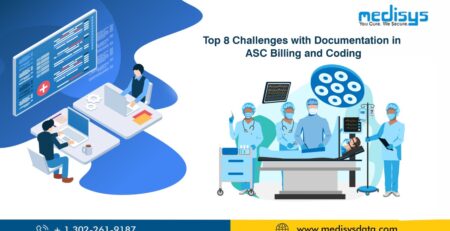Medical coders and billers are critical to the healthcare business. By carefully recording patient treatments and procedures they keep doctors and nurses organized and on track. Also they submit bills to insurance agencies, which then pay claims. If biller or coder makes a mistake, it can delay the claims process, cause a loss of revenue and/or potentially affect a patient’s care.
Recent audits by Government and private insurers’ have exposed many unfortunate cases of abusive or fraudulent medical billing practices. While you deserve to be paid for the medical care you provide, but it is equally important that you avoid improper billing practices to stay away from trouble and continue a booming practice.
Medical Coding errors fall into two wide categories – “Fraud” & “Abuse”. Fraud is deliberate misrepresentation. Whereas abuse means “the falsification was an innocent mistake, but nonetheless representative,” according to the AMA’s Principles of CPT® Coding, ninth edition. Either way, the consequences are costly. An example of abuse could include coding for a more complex service than was performed due to a misinterpretation of the coding system.
Here are some of the most common mistakes to avoid in medical coding that can result in claim denials, costing your practice big time.
Unbundling codes
With huge number of CPT codes, it is extremely easy to unintentionally select the incorrect procedure code when completing claims. Unbundling means using multiple CPT codes for different constituents of a procedure when a single code can be used instead to capture all the constituents. It involves charging procedures individually so that the provider gets a greater payout. It is considered intentional and fraudulent. Single catch-all codes should be used when available.
Upcoding
Upcoding happens when a provider meets with a patient for a few minutes, however a coder bills for a full exam lasting 45 minutes. The consequences for upcoding can be severe. In one instance an psychiatrist was fined $400,000 for upcoding. He used to charge for 30 or 60 minutes sessions with patients even if in reality he was only meeting them for 10-15 minutes for checking medications.
Neglecting to check National Correct Coding Initiative (NCCI) edits when reporting multiple codes.
The Centers for Medicare & Medicaid Services developed the NCCI to make sure that accurate coding methods were followed and avoid inappropriate payments for Medicare Part B claims. The NCCI analyzes every pair of codes to see if an edit exists. If there is an NCCI edit, it means a code is denied.
Neglecting to add the suitable modifiers, or appending wrong modifiers
Care should be taken to add correct and suitable modifiers.
Overusing modifier 22–increased procedural services
It is very important to include appropriate documentation explaining why the procedure requires more work than usual.
Reporting unlisted codes without documentation
If proper billing necessitates the use of an unlisted code, it’s imperative that the unlisted code is adequately documented
Reporting Injection Codes Inaccurately
Coders should only report one code for a entire session including injections. Do not report several units of a code.
Outsourcing your medical coding services to a medical coding company can help your practice avoid these top coding errors. It enhances your reimbursement and reduces your practice compliance risk












